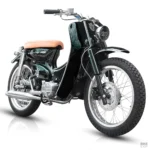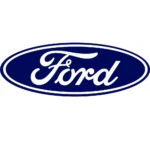Honda Motor Co. will halt the production of small mopeds by May 2025, in response to stringent emissions standards set to take effect later that year. This decision impacts mopeds with engine displacements of 50 cubic centimeters and below, a category where Honda currently holds an 80% domestic market share.
The upcoming emissions standards in Japan present significant development costs that are difficult to justify amid falling sales. Additionally, the moped format is unique to Japan, limiting its potential for overseas markets. This strategic decision marks the end of an era for a vehicle class that has been integral to Japanese transportation since the postwar economic boom.
Honda’s 49cc Super Cub C100, introduced in 1958, revolutionized the small moped market and became the company’s best-selling two-wheeler globally, with over 110 million units produced. However, Japan’s new regulations, effective November 2025, will tighten standards for harmful exhaust emissions. For engines 50cc and smaller, it is particularly challenging to design compliant catalytic converters due to factors like the time required for the component to reach optimal temperature.
The price range for small mopeds is currently around ¥200,000 to ¥300,000 ($1,250 to $1,880). Adapting these vehicles to meet new standards would drive costs higher, potentially surpassing the prices of 125cc mopeds, which sell for ¥300,000 to ¥450,000.
Sales of small mopeds have drastically declined as electric bikes and scooters gain popularity. In 2022, only 92,824 units were shipped in Japan, a stark contrast to the peak of 2.78 million units in 1982. Small mopeds in Japan are operable by anyone with an ordinary driver’s license or a specific moped license.
Honda’s decision underscores the shifting landscape of personal transportation, driven by regulatory changes and evolving consumer preferences. As the company phases out this iconic vehicle category, it will likely continue focusing on innovative mobility solutions to meet future market demands.







